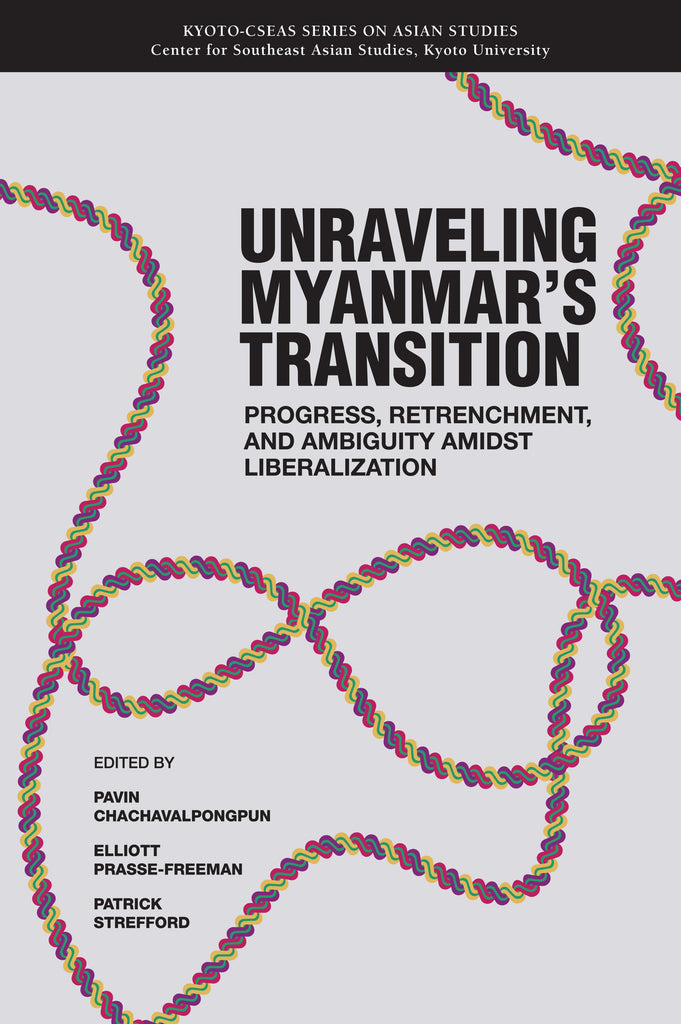Unraveling Myanmar's Transition: Progress, Retrenchment and Ambiguity Amidst Liberalization
$51.00 SGD
Pavin Chachavalpongpun, Elliott Prasse-Freeman, and Patrick Strefford
A Choice Recommended Title
The optimism provoked by Myanmar’s political reforms in 2011-2012 has now given way to a sense that the uneven nature of change in this nation of 54 million has lead to instability and uncertainty.
The liberalization of critical sectors and expansion of certain freedoms – such as political and legal opportunities for expression and mobilization – contrasts with the entrenchment of structural problems. It becomes ever more difficult to tackle ethnic marginalization and conflict, over-dependence on natural resource extraction, inadequate public services, and problems of under-capacity in the civilian bureaucracy.
The result is the build up of a toxic environment in which classism, racism, and bigotry threaten to rend Myanmar’s already delicate social fabric.
The contributors to this volume bring unique perspectives and methodologies to bear to unravel Myanmar’s tangled challenges. Whether it is through studying corruption by analyzing the country’s real estate bubble, assessing civil society advocacy capacity against extractive industries, or gauging the strength – and surprising weakness – of Myanmar’s military, the volume employs unconventional approaches and analytical rigor to address a fundamental question: is Myanmar itself unraveling?
"Variously wide-ranging and penetrating, the essays assembled in this volume examine Myanmar's short decade of dramatic political and social change in all its complexity, while querying what it means to talk of this as a time of national 'transition' at all. Dense with original research and fresh interpretations of what is happening in Myanmar and why, they bode well for the future of scholarship on this no-longer overlooked country at the nexus of South and Southeast Asia."
– Nick Cheesman, Australian National University
“By addressing the visible changes and more opaque continuities surrounding Myanmar's attempt to re-imagine itself as a nation, this important book provides crucial insight into how these dynamics affect and reflect the varied and entangled social fabric of the country.”
– Maitrii Aung-Thwin, National University of Singapore
“Since Aung San Suu Kyi’s quasi-civilian government took power in 2016, there has been a need for comprehensive, informed and objective surveys of key developments in Myanmar. The need has been made more acute by the 2020 elections. By providing such an overview, this book helps fill a gap in the literature and makes an important contribution to contemporary Myanmar studies”.
– Andrew Selth, Griffith Asia Institute, Griffith University
Pavin Chachavalpongpun is an associate professor at the Center for Southeast Asian Studies, Kyoto University.
Elliott Prasse-Freeman is an assistant professor in Sociology/Anthropology at the National University of Singapore.
Patrick Strefford is an associate professor of International Relations at Kyoto Sangyo University.
Kyoto CSEAS Series on Asian Studies
Publication Year: 2020
320 pages, 229mm x 152mm / 12 b/w figures, 10 tables
Paperback
ISBN: 978-981-3251-07-6

